What Drink Can Lower Blood Pressure?
Discover the best exercise options to effectively lower your blood pressure. This informational post explores aerobic exercises, strength training, yoga, HIIT, mindfulness, and Tai Chi.Did you know that there is a simple and natural way to reduce your blood pressure? Look no further, because I have the answer for you. In this article, we will reveal the drink that has been proven to effectively lower blood pressure. Say goodbye to stress and hypertension as we uncover this remarkable solution that is not only beneficial for your health but also delicious. So sit back, relax, and get ready to discover the secret behind maintaining a healthy blood pressure level.
Green Tea
Antioxidant properties
Green tea, known for its refreshing taste and numerous health benefits, has been found to possess antioxidant properties. Antioxidants are compounds that help protect the body against free radicals, which can cause damage to cells and contribute to various diseases, including high blood pressure. Consuming green tea regularly can help neutralize these harmful molecules and reduce oxidative stress in the body, thereby promoting overall health and well-being.
Relaxes blood vessels
One of the key ways in which green tea can help lower blood pressure is by relaxing the blood vessels. This is primarily attributed to the presence of a compound called catechins, which have been shown to have a vasodilatory effect. Vasodilation refers to the widening of blood vessels, allowing for easier blood flow. By promoting vasodilation, green tea helps to reduce resistance in the blood vessels, subsequently lowering blood pressure.
Lowers systolic and diastolic blood pressure
Studies have suggested that regular consumption of green tea can have a positive impact on both systolic and diastolic blood pressure. Systolic blood pressure represents the force exerted on the arterial walls when the heart contracts, while diastolic blood pressure reflects the pressure between heartbeats when the heart is at rest. By incorporating green tea into your daily routine, you may be able to see a gradual decrease in both these measurements, contributing to better cardiovascular health.
Hibiscus Tea
Contains phytochemicals
Hibiscus tea, a vibrant and fragrant herbal infusion, contains an array of phytochemicals that can aid in lowering blood pressure. Phytochemicals are naturally occurring compounds found in plants that possess various health-promoting properties. In the case of hibiscus tea, these phytochemicals, such as anthocyanins and flavonoids, have been shown to have anti-hypertensive effects. Regular consumption of hibiscus tea can therefore be an effective way to naturally manage blood pressure.
Reduces blood pressure
Several studies have demonstrated the blood pressure-lowering effects of hibiscus tea. The potent phytochemicals present in this floral beverage are believed to help relax blood vessels, thereby reducing the resistance to blood flow and resulting in a decrease in blood pressure. By incorporating hibiscus tea into your daily routine, you can actively contribute to the management of your blood pressure levels and promote cardiovascular health.
Lowers LDL cholesterol
In addition to its blood pressure-lowering properties, hibiscus tea has also been found to have a positive impact on cholesterol levels. Specifically, it has been shown to reduce levels of low-density lipoprotein (LDL) cholesterol, which is often referred to as “bad” cholesterol. High levels of LDL cholesterol can contribute to the development of heart disease, making hibiscus tea an all-around beneficial beverage for maintaining cardiovascular health.
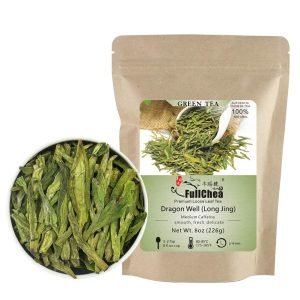
Beetroot Juice
Rich in nitrates
Beetroot juice, with its vibrant color and earthy taste, is not only a flavorful addition to your diet but also a great way to naturally lower blood pressure. This humble vegetable is rich in nitrates, which are converted into nitric oxide in the body. Nitric oxide is a compound that helps relax and widen blood vessels, leading to improved blood flow and lower blood pressure levels.
Promotes vasodilation
The high nitrate content in beetroot juice promotes vasodilation, similar to green tea. By widening the blood vessels, beetroot juice helps to ease the flow of blood throughout the body, reducing the strain on the cardiovascular system. This, in turn, leads to a decrease in blood pressure and improved overall heart health.
Lowers blood pressure
Numerous studies have demonstrated the blood pressure-lowering effects of beetroot juice. By consuming beetroot juice regularly, you can actively contribute to the management of your blood pressure levels. Incorporating this nutritious and refreshing beverage into your daily routine can be a simple yet effective way to support your cardiovascular health.
Pomegranate Juice
High in antioxidants
Pomegranate juice, with its distinct sweet-tart flavor, is not only a delicious beverage but also a potent source of antioxidants. Antioxidants play a crucial role in protecting the body against free radicals and reducing oxidative stress, which can contribute to high blood pressure and other cardiovascular diseases. By incorporating pomegranate juice into your diet, you can increase your intake of these beneficial compounds and promote overall heart health.
Reduces systolic blood pressure
Studies have shown that pomegranate juice consumption can lead to a significant reduction in systolic blood pressure. This reduction in the force exerted on the arterial walls during each heartbeat can have a positive impact on overall cardiovascular health. By regularly consuming pomegranate juice, you can actively contribute to managing your blood pressure levels and maintaining a healthy heart.
Improves overall heart health
In addition to its blood pressure-lowering properties, pomegranate juice has also been found to have other beneficial effects on heart health. It has been shown to improve factors such as arterial function and oxidative stress, both of which play a critical role in maintaining a healthy cardiovascular system. By incorporating pomegranate juice into your daily routine, you can support your heart health and reduce the risk of developing heart diseases.
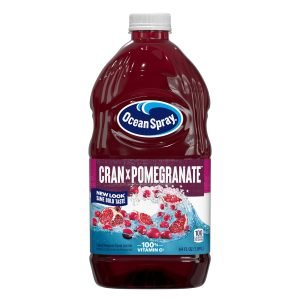
Cranberry Juice
Contains bioactive compounds
Cranberry juice, known for its signature tart flavor, is not only a refreshing beverage but also packed with bioactive compounds that offer various health benefits. These bioactive compounds, such as flavonoids and polyphenols, have been found to possess antioxidant and anti-inflammatory properties. Regular consumption of cranberry juice can therefore contribute to lowering blood pressure and reducing the risk of heart diseases.
Lowers blood pressure
Research suggests that cranberry juice consumption can help lower blood pressure levels. The bioactive compounds present in this tangy beverage can help relax blood vessels, enhance blood flow, and consequently reduce blood pressure. By incorporating cranberry juice into your diet, you can enjoy a flavorful way to support your cardiovascular health.
Reduces risk of heart diseases
In addition to its blood pressure-lowering effects, cranberry juice has been associated with a reduced risk of heart diseases. The bioactive compounds in cranberries have been found to have anti-inflammatory properties, which can help protect the heart and prevent the development of cardiovascular diseases. By regularly enjoying cranberry juice, you can take a proactive step in promoting your heart health and overall well-being.
Tomato Juice
Rich in lycopene
Tomato juice, with its vibrant red color and tangy taste, is not only a popular beverage but also a rich source of lycopene. Lycopene is a powerful antioxidant that has been associated with various health benefits, including the reduction of blood pressure. By including tomato juice in your diet, you can increase your intake of lycopene and support your cardiovascular health.
Lowers blood pressure
Regular consumption of tomato juice has been shown to have blood pressure-lowering effects. The lycopene present in this refreshing beverage helps to relax blood vessels, improve blood flow, and subsequently reduce blood pressure levels. By incorporating tomato juice into your daily routine, you can actively contribute to managing your blood pressure and maintaining a healthy heart.
Improves lipid profile
In addition to its blood pressure-lowering properties, tomato juice has also been found to have a positive impact on lipid profiles. Research suggests that regular tomato juice consumption can help reduce levels of triglycerides and low-density lipoprotein (LDL) cholesterol, both of which are risk factors for heart disease. By enjoying tomato juice as a part of a balanced diet, you can support your heart health and improve your lipid profile.
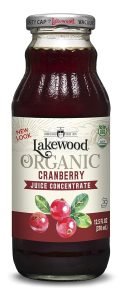
Orange Juice
Contains hesperidin
Orange juice, a classic breakfast favorite, is not only a refreshing and flavorful choice but also a source of hesperidin. Hesperidin is a flavonoid that has been shown to have beneficial effects on blood pressure levels and overall cardiovascular health. By incorporating orange juice into your diet, you can increase your intake of hesperidin and enjoy the potential health benefits.
Reduces blood pressure
Studies have suggested that orange juice consumption can help lower blood pressure levels. The hesperidin present in orange juice has been found to have anti-hypertensive effects, helping to relax blood vessels and improve blood flow. By including orange juice in your daily routine, you can actively contribute to managing your blood pressure and supporting your cardiovascular health.
Enhances endothelial function
Endothelial function refers to the health and functionality of the inner lining of blood vessels. Impaired endothelial function is often associated with conditions such as high blood pressure. The hesperidin in orange juice has been found to enhance endothelial function, promoting healthy blood vessels and overall cardiovascular health. By regularly enjoying orange juice, you can support the proper functioning of your blood vessels and potentially reduce the risk of developing cardiovascular diseases.
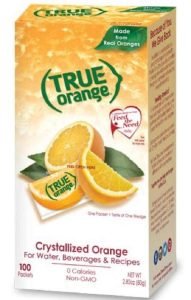
Milk
Good source of calcium
Milk, a staple beverage for many, is not only a delicious and versatile choice but also a good source of calcium. Calcium is an essential mineral that plays a crucial role in various bodily functions, including the regulation of blood pressure. By including milk in your diet, you can boost your calcium intake and potentially help regulate your blood pressure levels.
Helps regulate blood pressure
Calcium has been found to have a positive impact on blood pressure regulation. It helps in maintaining the proper functioning of smooth muscles in blood vessels, allowing for healthy blood flow and potentially reducing blood pressure. By incorporating milk into your daily routine, you can support your cardiovascular health and contribute to the maintenance of normal blood pressure levels.
Soothing and relaxing effect
In addition to its potential blood pressure-regulating properties, milk has a soothing and relaxing effect on the body. Many people find a warm glass of milk to be comforting and beneficial for relaxation, which can indirectly contribute to better blood pressure management. By incorporating milk into your bedtime routine or enjoying it as a calming beverage, you can promote a sense of calm and potentially positively impact your blood pressure levels.
Cocoa
Rich in flavanols
Cocoa, the key ingredient in chocolate, is not only a delicious treat but also a rich source of flavanols. Flavanols are bioactive compounds with antioxidant and anti-inflammatory properties that have been associated with various health benefits, including blood pressure reduction. By incorporating cocoa into your diet, you can increase your flavanol intake and potentially support your cardiovascular health.
Improves blood flow
Research suggests that regular consumption of cocoa can help improve blood flow and enhance cardiovascular function. The flavanols present in cocoa promote the release of nitric oxide, a compound that relaxes blood vessels and improves blood flow. By enjoying cocoa in its various forms, such as hot chocolate or dark chocolate, you can actively contribute to better blood flow and potentially lower your blood pressure.
Lowers blood pressure
Numerous studies have shown that cocoa consumption can lead to a reduction in blood pressure levels. The flavanols in cocoa help relax blood vessels, reduce arterial stiffness, and decrease resistance to blood flow, all of which contribute to a lower blood pressure. By incorporating cocoa into your diet, you can not only indulge in a delightful treat but also support your cardiovascular health.
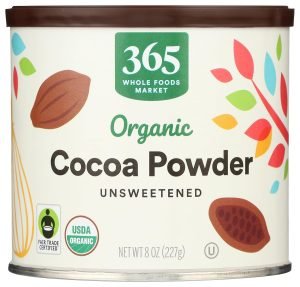
Watermelon Juice
Natural source of L-citrulline
Watermelon juice, with its refreshing taste and hydrating properties, is not only a summer favorite but also a natural source of L-citrulline. L-citrulline is an amino acid that has been found to have beneficial effects on blood pressure. By enjoying watermelon juice, you can increase your intake of L-citrulline and potentially support your cardiovascular health.
Promotes vasodilation
L-citrulline present in watermelon juice has been shown to promote vasodilation, similar to beetroot juice. Vasodilation helps relax blood vessels and improve blood flow, subsequently reducing blood pressure levels. By including watermelon juice in your diet, especially during the warmer months, you can actively contribute to better blood flow and potentially lower your blood pressure.
Helps reduce blood pressure
Studies have suggested that watermelon juice consumption can lead to a decrease in blood pressure. Regular intake of watermelon juice, with its natural L-citrulline content, can contribute to reducing blood pressure levels and supporting cardiovascular health. By incorporating this juicy and refreshing beverage into your routine, you can enjoy its hydrating properties and potential health benefits.

In conclusion, several beverages offer potential benefits for lowering blood pressure and supporting cardiovascular health. Green tea, hibiscus tea, beetroot juice, pomegranate juice, cranberry juice, tomato juice, orange juice, milk, cocoa, and watermelon juice all possess unique properties that can contribute to better blood pressure management. By incorporating these beverages into your diet in moderation, along with practicing other healthy lifestyle habits, you can proactively support your cardiovascular health and maintain optimal blood pressure levels. Remember to consult with a healthcare professional before making any significant changes to your diet.




